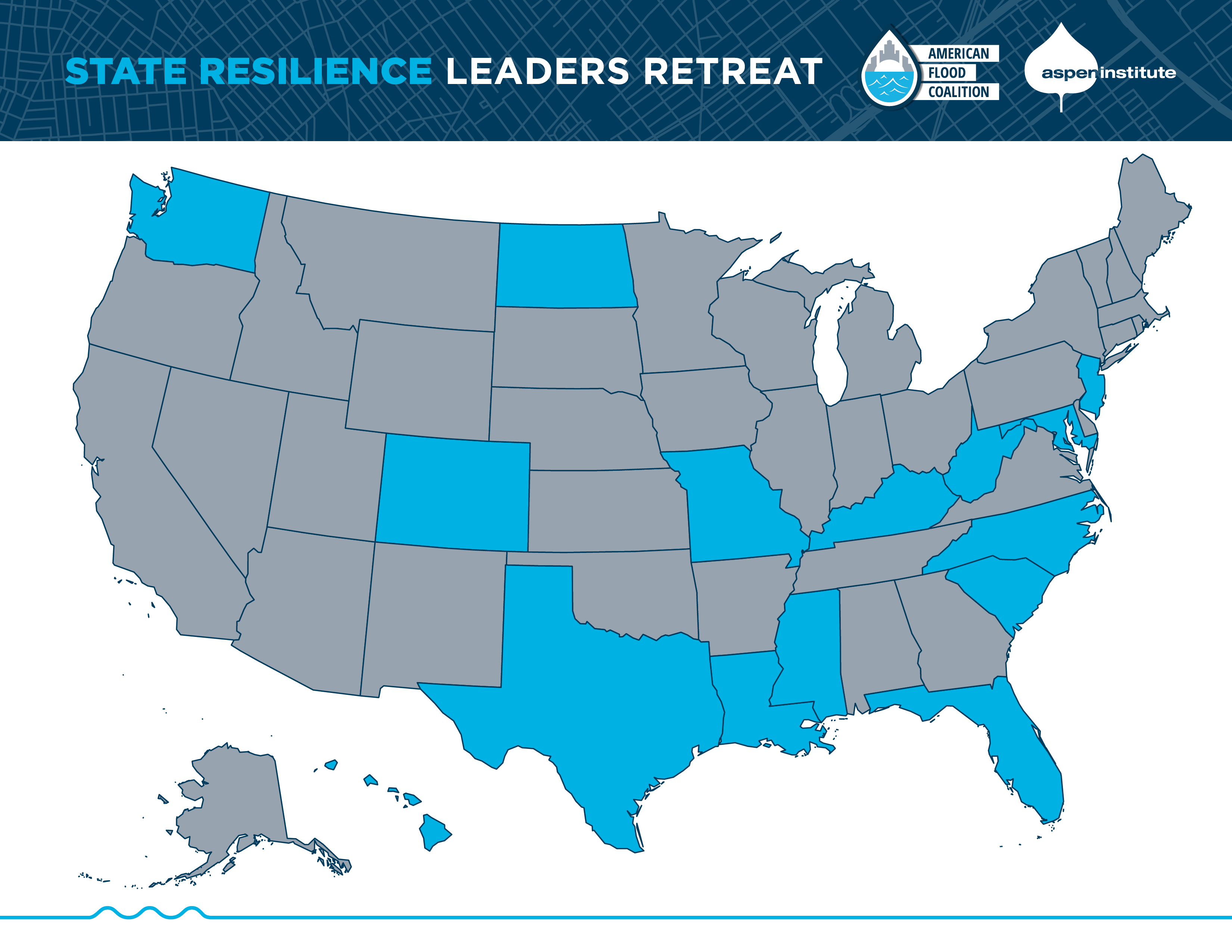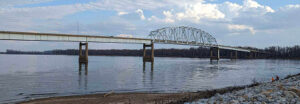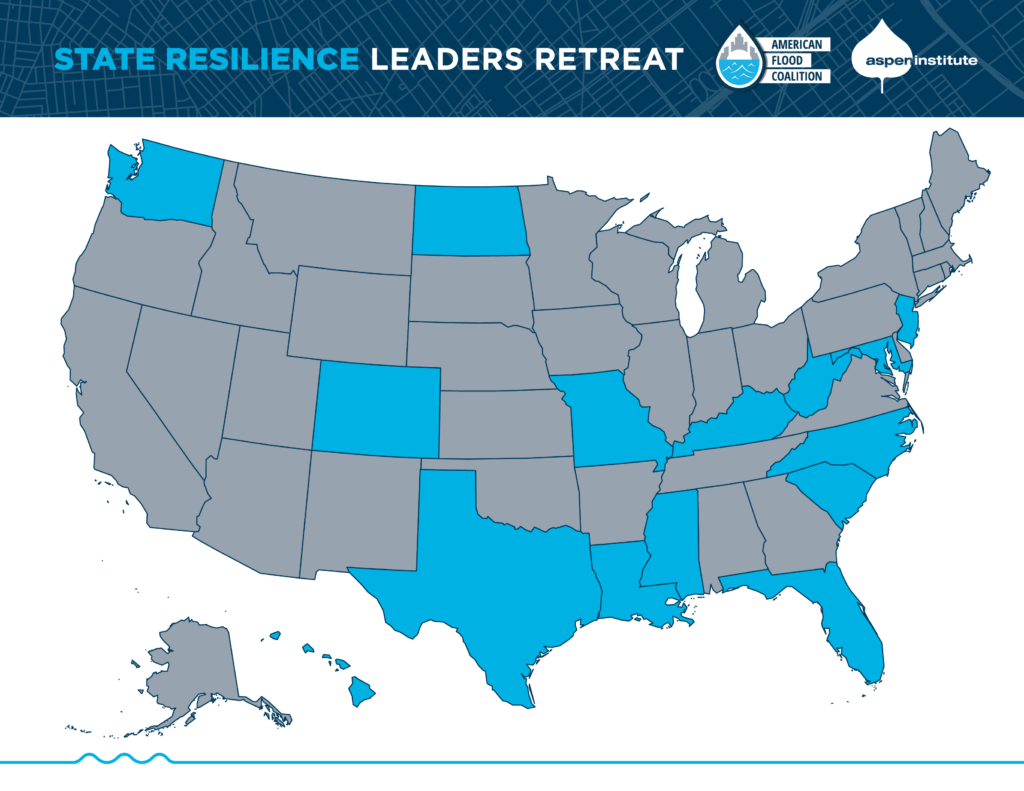December 9, 2022
—

Last month, the American Flood Coalition and the Aspen Institute Energy and Environment Program brought together senior state resilience leaders from 15 states in Aspen, Colorado, for the first-of-its-kind State Resilience Leaders Retreat.
The three-day retreat built a foundation for participants to discuss common challenges and identify solutions for increasing flood resilience in their respective states. The retreat was closed-door to encourage the free exchange of ideas.
At the retreat, the American Flood Coalition introduced a draft framework for states to identify and implement flood solutions in a systematic way, focusing on leadership, data and risk assessment, planning, funding and financing, and state standards. Throughout the retreat, state leaders refined and built on the framework, while sharing challenges and successes across their states.
“Chief resilience officers and other state-level leaders are critical to building resilience against stronger storms, higher seas, and more frequent flooding throughout the United States,” said AFC Executive Director Melissa Roberts. “The American Flood Coalition hosted this Retreat with the Aspen Institute so that these leaders can collaborate across political and geographic boundaries and bring back proven, innovative flood solutions to their states.”
The retreat focused on state-level resilience because of the unique responsibility for planning for floods at the state level: State officials receive and allocate most federal funding, help with local planning across jurisdictional boundaries, and can create entities for larger watershed management.
The American Flood Coalition convened participants, with positions ranging from chief resilience officer to directors of state agencies and departments. Leaders represented regions from across the country, including the Mid-Atlantic, South, Pacific Northwest, Appalachia, and Midwest. It was the first time many of these leaders met each other in-person.
While each state has unique challenges, sharing best practices across states of different geographies, politics, and flood risks fosters collaboration and innovative insight to solve some of our greatest challenges. Topics discussed included the role of risk data in state investment decisions, leveraging state funds to unlock federal funding, and translating local needs into high-quality flood projects.
“This entire workshop has been extremely helpful,” said one participant. “I could go on about everything that I’m going to take back with me, but we don’t have the time!”
Attendees left the event with twelve-month goals to move flood resilience forward in their states, ranging from advancing statewide flood plans with a focus on watershed scale to coordinating with state legislatures to identify recurring funding for resilience.
Without a forum to engage on shared challenges, many state leaders are left to work on resilience alone. The American Flood Coalition was proud to provide a forum for state officials to learn from each others’ challenges and successes, and the State Resilience Leaders Retreat in Aspen was the first of many engagements to come between the American Flood Coalition and state resilience leaders.
As state leaders drive progress on flood resilience and adaptation, the American Flood Coalition will continue to serve as a go-to resource for state leaders and will engage with state leaders going forward.
“In terms of support, I’m grateful for the convening and wise facilitation that has allowed us to do big thinking and connect the dots across states,” said one participant.






